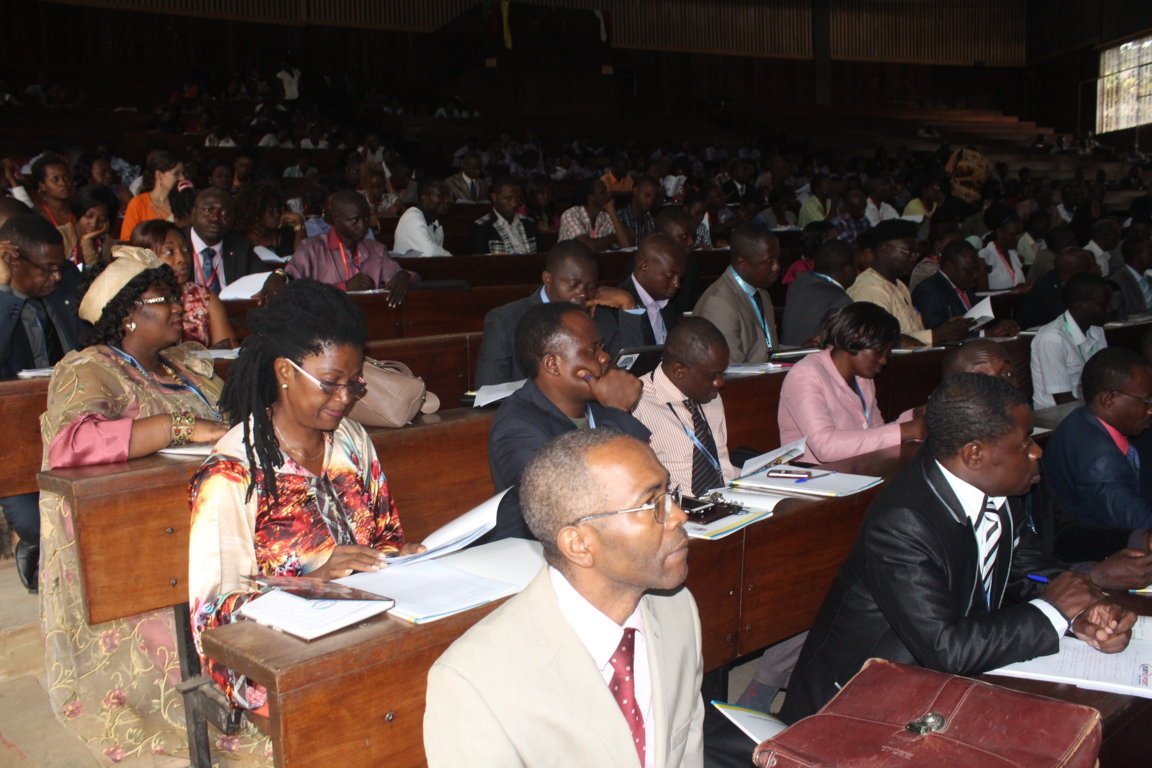
For a number of years now, the Goethe Institut has been offering German alumni under the aegis of KBK (Koordinationsbüro Kamerun) the opportunity, as part of one of its flagship programs, to come together to discuss topics of general or specific interest, enabling them to participate in the analysis and solution of challenges that concern them in particular, or that concern the national and international community at different levels and in different sectors.
In previous years, we have addressed a number of topics, including migration and urbanization. The debate on migration gave rise to a publication that will be updated and published online for wider distribution. We were then particularly interested in three themes relating to urbanization: city and market, city and health, city and living together. The debate around these themes was particularly fruitful, and enabled us to identify strategies and ideas that we intended to submit to the organization. United Towns and Cities of Cameroon(CVUC) with whom we were in talks, and who had expressed an interest in cooperating with the pools of experts we wanted to set up at the time. Unfortunately, our talks with this organization stalled due to the inertia that characterizes the functioning of most organizational structures in our country.
In 2016, at the request of our partner, the Goethe-Institut, we opted to forego our usual mode of organizing seminars, in order to focus our energies instead on participation in the international colloquium on the centenary of the departure of Germans from Cameroon. A number of former Germans took part in the symposium, which was a great success.
In 2017, we are returning to our usual formula of bringing together alumni from Germany and other participants at the DAW-Centre, to reflect on a topic of national interest. In view of current events, and as an extension of our previous reflections, we propose to focus our thoughts on the following theme: living together locally, nationally and globally: models, experiences and challenges ; in particular, we'd like to continue our debate on subjects we've touched on in the past, such as migration and the city.
This time, we'll be analyzing experiences from here and elsewhere, models tested in Cameroon or elsewhere, at different scales.
We could examine traditional models for organizing intergroup relations in Cameroon and other African countries, models existing before colonization, established during colonization, or developed after independence, European, American, Asian and other models.
We would also have the opportunity to reflect on certain theoretical models such as multiculturalism, interculturalism, nationalism, clanism, racism and other models of withdrawal, distance and ostracism. We will appreciate the results of their more or less consistent application.
All this reflection will enable us to identify recommendable models in our national context or elsewhere; it is therefore a highly ambitious project for which we will mobilize the respective expertise of the Alumni of Germany, but also of other people with whom we collaborate.
The subject has become particularly topical due to what we must call the "Anglophone question", but also due to several situations and events that have marked our daily lives in several places in Cameroon, Africa and elsewhere. I'm thinking in particular of what's happening in the Evangelical and Presbyterian churches, of what's happening in northern Cameroon and Nigeria, in Chad and Niger with the development of the Boko Haram phenomenon, of what's happening in Sudan, Côte d'Ivoire, northern Mali, the DRC and South Africa, of the migrant crisis in Europe and the United States and the status of the various diasporas in these countries, etc.
The aim of the Alumni Denkfabrik is not to take sides with or against the conflicting players, nor to make declarations of principle or professions of faith. On the contrary, it is to take a step back and contribute to the development of models for living together.
To do this, we need to mobilize our intelligence and knowledge, particularly our scientific knowledge, to draw on our respective disciplines to offer the possibility of solutions devised and implemented by different societies around the world to manage, with varying degrees of success, a relatively harmonious conviviality that transcends diversity of different kinds.
With this in mind, historians and anthropologists could explain to us the conditions that made it possible for certain societies to survive, as well as certain kingdoms and empires that were created in Africa and elsewhere in the world, and the inter-societal or inter-regional management mechanisms for limiting the risks of belligerence and organizing peace diplomacy.
Political scientists could present us with different models of state management aimed at managing differences on a non-violent and constructive basis.
Economists and sociologists could present the social and economic conditions for successful social harmony.
Philosophers, linguists and literary scholars could explain to us the various strategies that have been devised and eventually implemented to organize and obtain the the "we" feeling and social cohesion.
This means moving away from the usual dichotomous confrontation of unitary versus federal states, to explore the range of possibilities developed by the imagination of peoples and organizations throughout history and around the world to meet the challenge of the living together. The aim, of course, is not to settle current debates, but to enrich, deepen and broaden them.
I would therefore kindly ask you to submit a theme and abstract by the end of June, with the seminar scheduled for September 28-29, 2017.
between the Faculty of Medicine and the Centre National de Développement du Numérique Universitaire (CNDU)